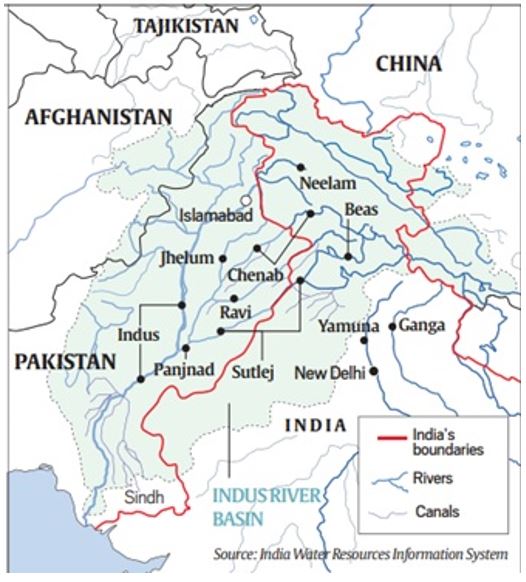

22nd January 2025 (11 Topics)
Context
The World Bank-appointed "neutral expert" upheld India's stand after Pakistan raised several questions in relation to the Kishenganga and Ratle hydroelectric projects in Jammu and Kashmir on matters related to the Indus Water Treaty (IWT).
Background (the dispute):
- India and Pakistan have been in a long-standing disagreement over two hydroelectric projects in Jammu and Kashmir—
- Kishenganga Project (330 MW) on Kishenganga river, a tributary of
- Ratle Project (850 MW) on the Chenab River.
- Pakistan has raised concerns over the design of these projects, claiming that they could reduce water flow to Pakistan’s western rivers (Indus, Jhelum, and Chenab), which it is entitled to use under the Indus Waters Treaty (IWT) signed in 1960.
What is Indus Waters Treaty (IWT)?
- Signed in: 1960
- India and Pakistan share water from six rivers in the Indus River system: Ravi, Beas, Sutlej, Indus, Jhelum, and Chenab.
- The Indus Waters Treaty (IWT) divides the water rights between the two countries:
- India controls the three eastern rivers (Ravi, Beas, Sutlej)
- Pakistan has unrestricted rights to the three western rivers (Indus, Jhelum, Chenab). India can use the waters of the western rivers for hydroelectric power, but it cannot build storage dams on these rivers.



